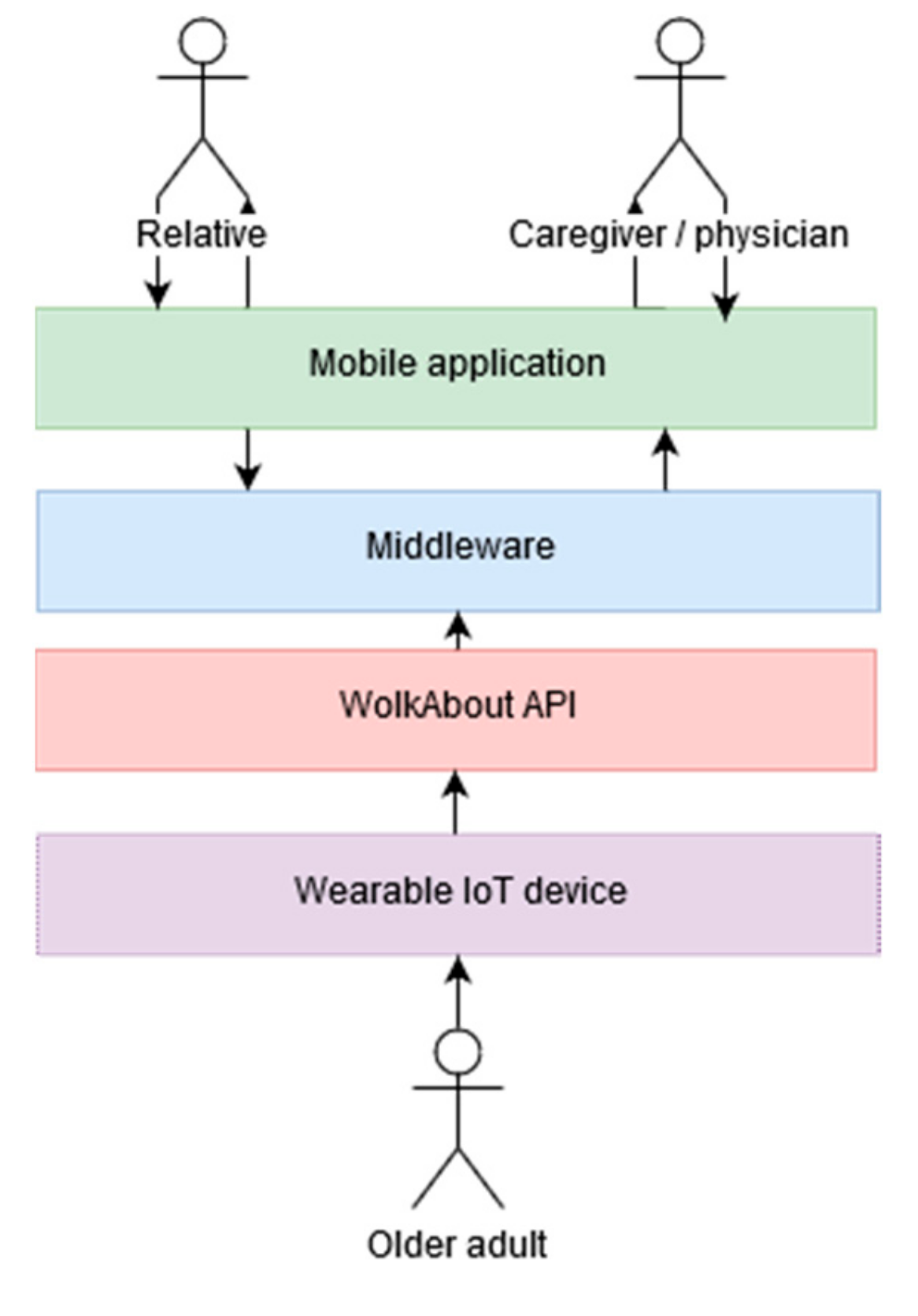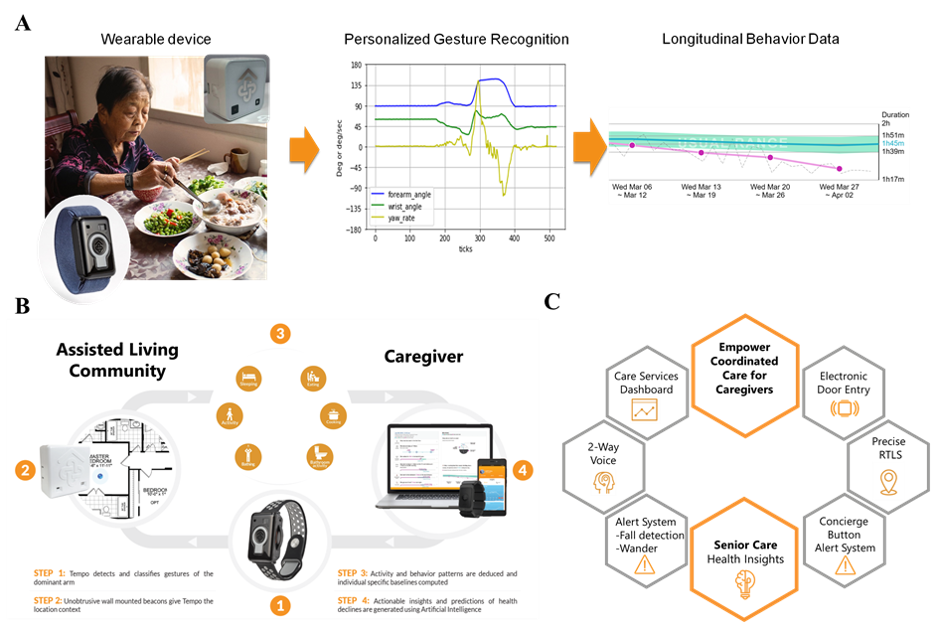The global demographic picture is shifting dramatically, with unprecedented growth in the elderly population. This demographic transition presents many issues, particularly in delivering effective healthcare for older people. In response to these issues, various revolutionary research articles and studies have arisen, providing novel solutions that collectively reinvent the standard model of senior care. As countries around the world deal with the repercussions of a growing elderly population, demand for eldercare has increased. Older people, particularly those in assisted living facilities, confront numerous obstacles, including chronic conditions, impairment, and an increased risk of falling. These challenges are having an impact on existing caring approaches, leading to a paradigm shift in the approach to eldercare.
Research papers and studies offer a ray of light in the form of technical advancements that promise to transform elderly care. This op-ed delves into four key components of this transformational landscape: the Abuelómetro system, hybrid cloud solutions, artificial intelligence (AI) in cognitive health, and the CarePredict AI-powered digital health platform and wearable device. Together, these solutions provide a comprehensive approach to meeting the different demands of the elderly population.
The Abuelómetro system, an Internet of Things (IoT) breakthrough built for remote monitoring of elderly people in nursing homes, represents an embodiment of hope in the field of elderly care. The prototype includes a mobile application, middleware, and a smartwatch that communicates smoothly with the WolkAbout IoT Platform. The system’s capabilities, which include real-time sensor readings and graphical data visualization, promise to provide a full picture of elderly people’s health.
The Abuelómetro system not only tackles current issues in healthcare delivery, but it also promotes good communication among carers, family members, and healthcare professionals. The system’s usability examination achieved an exceptional average score of 83.0 on the Systems Usability Scale (SUS), indicating not just good usability but also a high chance of user recommendation. This unique approach demonstrates the potential of AI technologies to change remote monitoring and healthcare delivery for elderly people.
The second pillar of our transformative approach lies in the integration of hybrid cloud solutions, addressing the specific challenges associated with chronic disease management in older people. Recognizing the physiological loss in motor, sensory, and cognitive capacities in older people, this concept combines robotic technologies and cloud computing. The proposed hybrid robot-cloud model demonstrated in a research study is positioned as an effective option for medication management, reminders, and daily activity support. By connecting chemists and doctors via a website, the model promotes communication and collaboration among multiple stakeholders, resulting in a more personalized and efficient approach to senior care.
Maintaining cognitive health has been considered an important component of healthy aging and autonomy. However, difficulties in detecting cognitive decline in its early stages have long existed. The third pillar of our transformative approach describes AI as a transformative tool in healthcare for anticipating, detecting, and categorizing neurocognitive deficiencies.
The conceptual review study in Psychiatry Research Volume 284 investigates the possibilities for complicated medical data analysis using AI technologies such as machine learning (ML), deep learning (DL), and natural language processing (NLP). The review emphasizes the need for non-invasive, practical, and scalable diagnostic tools to detect cognitive impairments early, offering insights into the potential of AI to transform the diagnosis and treatment of neurocognitive disorders.
The fourth pillar of our transformational landscape is the CarePredict AI-powered digital health platform and wearable device, which is specifically built for assisted living communities. In a pilot trial, the CarePredict system had considerable positive results for the communities that used the technology. 
Compared to control communities without the system, those with CarePredict exhibited a 40% lower hospitalization rate, a 69% lower fall rate, and a 67% greater length of residence stay. The findings imply that AI technology can help improve the quality of care and outcomes for older individuals in assisted living settings. Possible causes for these favorable results include the system’s involvement in successful communication, resident alerting, and providing detailed data about residents’ activities and behavior. The CarePredict system helps prevent minor situations from escalating by enabling quick care coordination and preventative treatments based on behavioral changes, thereby reducing hospitalizations and enhancing overall healthcare quality.
In a nutshell, the convergence of these four transformational pillars—Abuelómetro, hybrid cloud solutions, AI in cognitive health, and CarePredict—heralds an innovative age in elderly care. As we regulate the obstacles faced by an aging population, these technological advancements provide not only immediate solutions but also create the basis for a future in which elderly people enjoy a dignified, personalized, and improved quality of life. The combination of these solutions indicates an innovation in elderly care, encouraging complete, proactive, and personalized healthcare delivery. However, it is essential to recognize the limitations and problems identified in these studies, emphasizing the importance of continued research, greater sample sizes, and constant development.
As we embrace technology’s revolutionary power, the combined impact of these solutions has the potential to reshape the narrative regarding aging. The Abuelómetro system, hybrid cloud solutions, AI in cognitive health, and CarePredict demonstrate how technology can not only address the issues of elderly care but also reinvent what it means to age with dignity, autonomy, and optimal health. While these technologies provide constant supervision, which could compromise the elderly’s privacy, it is important to recognize their usefulness in providing great care. The difficult balance between better care and respect for individual privacy remains an important concern as we negotiate the changing landscape of elderly healthcare. As we continue to welcome technological developments, we must stay attentive to addressing ethical concerns, ensuring that the benefits of innovation are balanced against a commitment to protecting our older people’s dignity and autonomy. In the broad tapestry of healthcare innovation, these pillars demonstrate our ongoing commitment to creating a brighter, healthier future for the generations that came before us.


